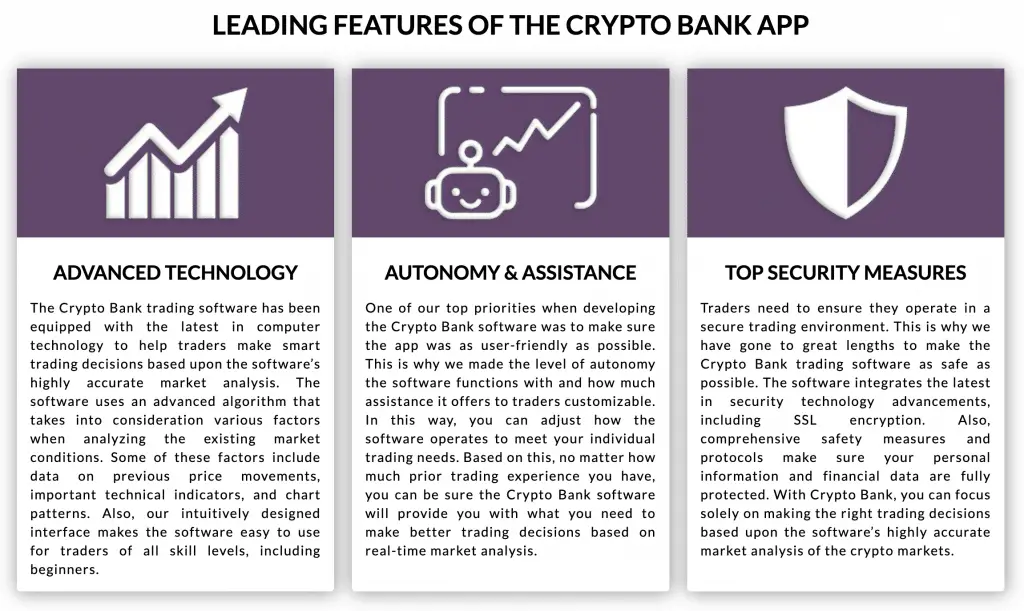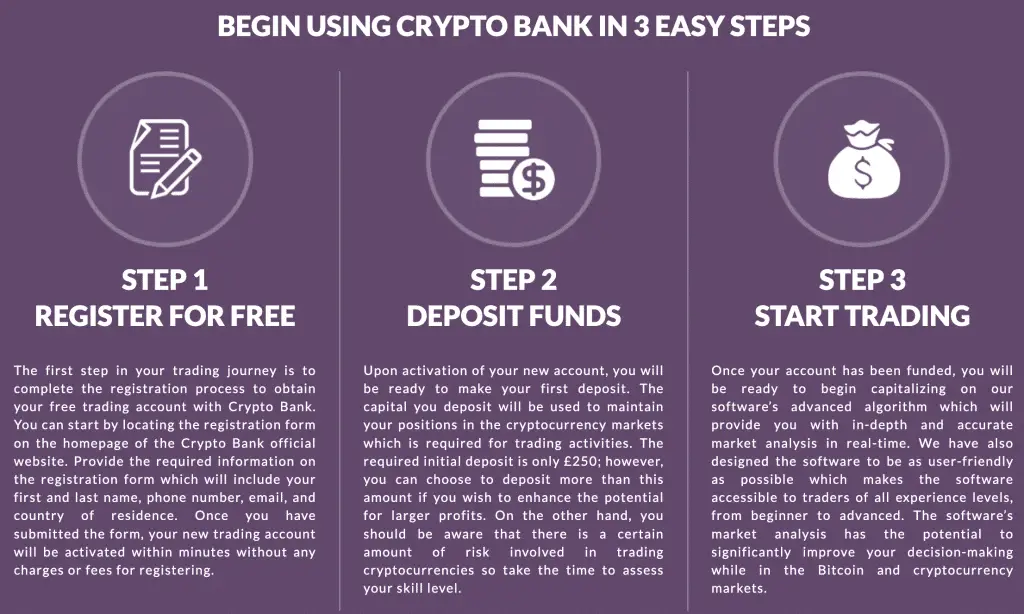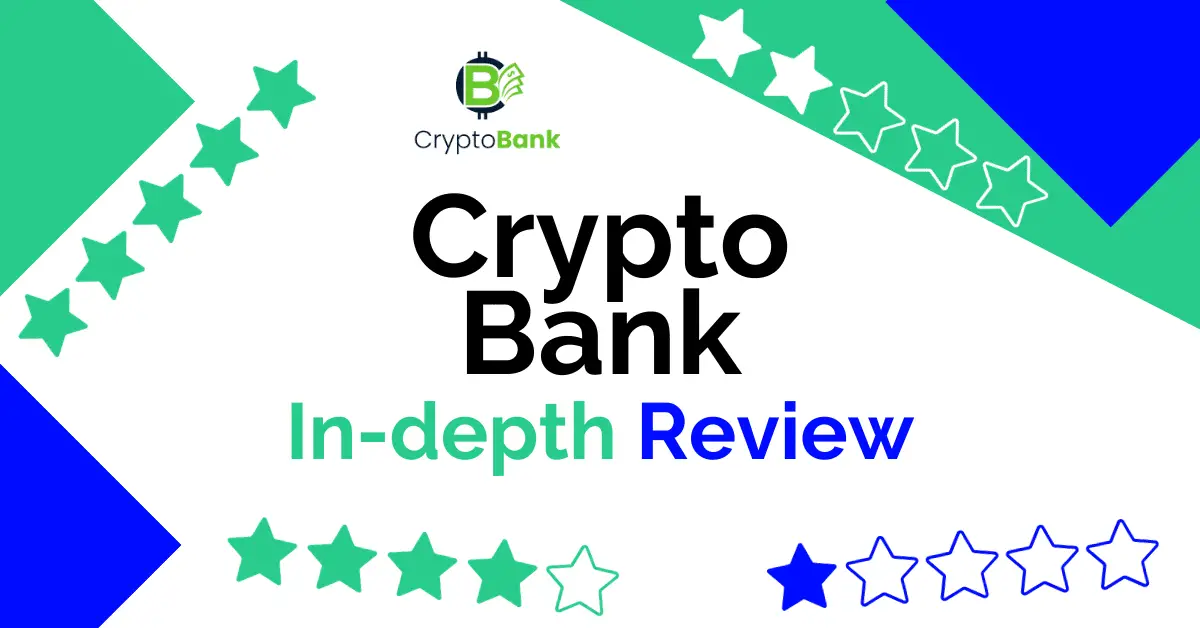In recent years, the world has seen a surge in digital currencies, leading to an increasing number of financial institutions offering services tailored towards cryptocurrency users. One such service is the emergence of crypto banks, which cater specifically to customers investing and trading in cryptocurrencies. In this article, we delve into what crypto banks are, how they operate, their main characteristics, and features that set them apart from traditional banks.
What is a Crypto Bank?
A crypto bank is a financial institution that specializes in providing banking services for digital assets, including cryptocurrencies like Bitcoin, Ethereum, and Ripple. These banks function as a bridge between the traditional banking system and the rapidly evolving world of blockchain technology, allowing customers to seamlessly transact using both fiat currency (e.g., US Dollar, Euro) and cryptocurrencies. By offering such services, crypto banks aim to address the needs of a growing population who see value in incorporating digital assets into their financial activities.

How Does a Crypto Bank Work?
At their core, crypto banks work similarly to traditional banks in that they provide a range of financial services to customers. However, the primary distinction lies in the fact that these services revolve around the purchase, sale, storage, and management of cryptocurrencies. Some common functions offered by crypto banks include:
- Crypto wallets: Securely store and manage various types of cryptocurrencies in digital wallets.
- Exchange services: Buy or sell cryptocurrencies at competitive rates while benefiting from the convenience of trustworthy intermediaries.
- Asset management: Receive data-driven insights and professional guidance on investment strategies and portfolio management with a focus on cryptocurrencies and other digital assets.
- Loan services: Borrow or lend fiat currencies using cryptocurrencies as collateral, offering users increased flexibility in their financial dealings.
- Debit cards: Access and spend cryptocurrencies like traditional currency through debit cards linked to cryptocurrency accounts.
These services are typically accessible via an online platform or mobile application, thereby streamlining the banking process for crypto enthusiasts. Moreover, some crypto banks partner with traditional financial institutions to facilitate specific fiat-based transactions, such as wire transfers and ATM withdrawals.
Main Characteristics of Crypto Banks
Crypto banks stand out from their traditional counterparts due to several key characteristics that cater specifically to the needs of the crypto community:
- Security: Given the digital nature of cryptocurrencies, the security of customers’ funds is a top priority. Crypto banks utilize advanced measures such as encryption, multi-signature authentication, and cold storage solutions to safeguard digital assets. Additionally, most crypto banks have robust Know-Your-Customer (KYC) and Anti-Money Laundering (AML) policies in place to mitigate risks associated with fraudulent activities.
- Anonymity: While complying with necessary KYC and AML regulations, many crypto banks still offer a degree of anonymity in transactions by withholding personal information when processing payments between parties.
- Accessibility: Powered by blockchain technology, crypto banks enable swift and efficient cross-border fund transfers without the need for intermediaries, often resulting in lower transaction fees and faster processing times than traditional banks. Furthermore, crypto banks provide banking services to unbanked populations by removing barriers to entry, such as minimum account thresholds and physical branch locations.
- Innovation: Given their nature, crypto banks are usually at the forefront of financial innovation, regularly rolling out novel features and services that cater to changing customer needs and preferences.
- Regulation: As with traditional banking institutions, the regulatory landscape for crypto banks varies from jurisdiction to jurisdiction. While some countries have imposed restrictive measures or outright bans on cryptocurrencies, others provide a supportive environment for their growth and adoption. Crypto banks, therefore, operate under differing levels of regulation depending on their geographic location and specific services offered.

Features to Look for in a Crypto Bank
When choosing a crypto bank, there are several essential factors that customers should consider:
Reputation and Trust
A key aspect is the institution’s reputation within the industry and amongst its customers. A crypto bank that enjoys positive reviews and high ratings is more likely to be trustworthy and reliable in offering its services.
Security Measures
It is crucial to investigate the security protocols employed by the crypto bank to protect users’ digital assets and data from potential threats. Additionally, check if the crypto bank has insurance coverage in the case of unexpected losses.
Fees and Charges
Before selecting a crypto bank, compare the fees associated with different services they offer such as withdrawal fees, trading fees, and conversion rates. Opting for a bank with competitive and transparent fee structures can prove cost-effective in the long run.
User Experience
The user interface and overall experience provided by the crypto bank play an essential role in transaction convenience. Look for a bank with an intuitive platform and responsive customer support channels.
Range of Offered Services
Ideally, a crypto bank should provide an extensive selection of financial services, catering to varying customer needs. Choose a bank whose offerings align with your specific requirements and preferences in the world of crypto banking.
Understanding Crypto Banks: How Do They Work?
Crypto banks combine the features of traditional banks with those of cryptocurrency exchanges. They allow users to store, transfer, and trade both fiat currencies and cryptocurrencies within one platform. Most crypto banks have their digital wallets where users can hold multiple types of cryptocurrencies along with traditional bank accounts. To start using a crypto bank, follow these steps:
- Create an account on the chosen platform by providing basic personal information.
- Complete the KYC (Know Your Customer) and AML (Anti-Money Laundering) verification process if required by the platform.
- Deposit money into your account through various means like bank transfers, credit/debit card payments, or even other cryptocurrencies.
- Based on the services offered, you can now buy and sell cryptocurrencies, exchange them for traditional currencies, or invest in ICOs (Initial Coin Offerings).

A Look into the Advantages of Crypto Banks
The increasing popularity of crypto banks can be attributed to several reasons. Some of the most notable advantages include:
- Ease of use: Crypto banks make it easy to manage both traditional and crypto-assets under one roof, eliminating the need to shuffle between separate banking platforms.
- Accessibility: Utilizing blockchain technology and a decentralized system, crypto banks can provide financial services to users even in remote areas where traditional banking facilities are limited.
- Diverse functionalities: In addition to basic deposit and withdrawal features, some platforms also offer investment opportunities, loans, and trading options based on their unique offerings.
- Lower fees: Many crypto banks charge lower transaction fees compared to traditional banks, thereby attracting cost-conscious users.
- Enhanced privacy: Since most transactions are carried out through blockchain technology, the level of privacy is elevated compared to traditional banking transactions.
The Other Side: Disadvantages of Crypto Banks
No innovation is immune from drawbacks. The same goes for crypto banks, which have their share of disadvantages:
- Regulatory challenges: The evolving nature of cryptocurrency regulation worldwide poses complexities within the sector. While some countries have adopted crypto-friendly laws, others still consider this financial innovation a threat to traditional banking systems.
- Limited coverage: Not all cryptocurrencies are supported by every crypto bank, putting constraints on users who wish to trade in a diverse range of coins.
- Vulnerability to cyber threats: Similar to any digital platform, crypto banks may also be prone to hacking and other security breaches despite having advanced security measures in place.
- Variable fee structure: Though many platforms boast low fees, the costs associated with conducting transactions may vary across providers and types of operations.
Customer Reviews and Ratings: What Do They Say?
With an increasing number of users turning towards crypto banks for various financial solutions, there has been a surge in customer reviews and ratings that help potential investors gauge the authenticity and reliability of these platforms. Some common themes that emerge from such reviews include:
Positive Aspects Highlighted by Customers
- User-friendly interface: Several crypto banks receive praise for their intuitive layout and ease of use, making it simpler for users to navigate through the platform.
- Efficient customer support: A responsive customer service team is often appreciated by clients who face technical or account-related issues while using the platform.
- Wide range of cryptocurrencies: Platforms offering an extensive selection of digital currencies are deemed more attractive by several customers, allowing them to diversify their investments.
Negative Factors Brought Up in Reviews
- Withdrawal delays: Some users complain about prolonged waiting times when withdrawing funds from their accounts.
- High fees: Certain platforms may charge excessive fees in specific instances, causing dissatisfaction among some users.
- Poor trading features: Users accustomed to advanced trading tools may find limited availability or inefficiency with crypto banks, impacting their trading experience negatively.
Are All Crypto Banks Safe?
It’s crucial to exercise due diligence when choosing a crypto bank, given the prevalence of scams and fraudulent entities in the digital space. By evaluating factors such as regulatory compliance, reputed financial authorities’ endorsements, actual user experiences, and background checks on founders and team members, one can make an informed decision on selecting a legitimate crypto bank.
Selecting the Best: Evaluating Success Rates
Achieving a high success rate is crucial for any financial institution, and the same holds true for crypto banks. Users must have confidence that their chosen bank will manage their digital assets efficiently and securely. High success rates indicate not only proper handling and storage but also responsible investment strategies backed by extensive research and analysis. It’s important to look beyond mere claims, however, and delve into actual results or independent audits to get a true picture of performance.
Fees and Commissions: Striking the Right Balance
Crypto banks inevitably charge fees and commissions to cover operational expenses and generate profit. That said, customers should not feel like they’re being nickel-and-dimed at every turn. As such, comparing fee structures between institutions can play a significant role in selecting the most suitable crypto bank. Some aspects to consider include:
- Deposit and withdrawal fees
- Trading and exchange fees
- Loan interest rates
- Staking and yield farming rewards
- Any other hidden costs or surcharges
It’s essential to weigh these fees against the bank’s offered services and performance. In some cases, higher fees may be justifiable due to superior products or features, while more affordable options could result in lower overall return on investment.
Avoiding Scams: Identifying Red Flags
Unfortunately, scams in the crypto banking space are very real and pose significant risks for unsuspecting customers. To make an informed decision about a specific crypto bank, you should look for red flags that might indicate untrustworthiness:
- Lack of transparency: A legitimate crypto bank should be transparent about its fees, commissions, past performance, regulatory compliance, and any other relevant information. Vague, evasive answers or missing data should give investors pause.
- Unrealistic promises: Promising exceptionally high returns with little risk is often too good to be true, so proceed with caution if you come across such claims.
- Inadequate security measures: Effective cybersecurity is non-negotiable for crypto banks—as is evidence of robust internal controls and monitoring systems to protect customers’ assets. Don’t trust your investments with an institution that cuts corners on security.
- Poor customer service: A reputable crypto bank should have responsive, knowledgeable customer support ready to address clients’ concerns and queries.
- Negative reviews: While it’s essential to take online feedback with a grain of salt (and remember even the best companies sometimes garner negative comments), a preponderance of poor reviews could indicate a scammy reputation.

Building Trust: Assessing Reliability
The most reliable crypto banks will tick all the right boxes when it comes to regulatory compliance, transparency, and security. Here are some key indicators to help gauge an institution’s reliability:
- Regulatory compliance: Licensing or registration with appropriate regulatory authorities can provide added assurance of legitimacy. Organizations such as the Financial Crimes Enforcement Network (FinCEN) in the United States offer licenses for activities related to digital assets.
- Audit results: Engagement with reputable third-party audit firms ensures ongoing oversight and adherence to best practices.
- Insurance coverage: Crypto banks that insure customers’ funds demonstrate confidence in their ability to protect those assets and provide an added layer of security.
- Industry partnerships: Collaborations with other well-regarded companies within the crypto ecosystem can signal a certain level of trustworthiness among peers.
User Reviews: Listening to Real-World Experience
While features, fees, and regulations are essential factors for evaluation, you’ll want to pay close attention to firsthand user reviews—whether through blogs, social media, or community forums. These customer accounts can provide invaluable insights into how well a crypto bank delivers on its promises. Keep in mind, however, that reviews can sometimes be misleading or influenced by hidden motivations; it’s important to consider multiple perspectives and sources before making a decision.
Conclusion: Stepping Confidently Into the World of Crypto Banking
Selecting the right crypto bank for your needs is no small task. With so many options—and potential scams—it’s crucial to look for a combination of high success rates, reasonable fees, trustworthy partners, robust security measures, and glowing client testimonials. Conducting thorough due diligence will ultimately empower you to choose a reliable and successful partner on your cryptocurrency journey.

